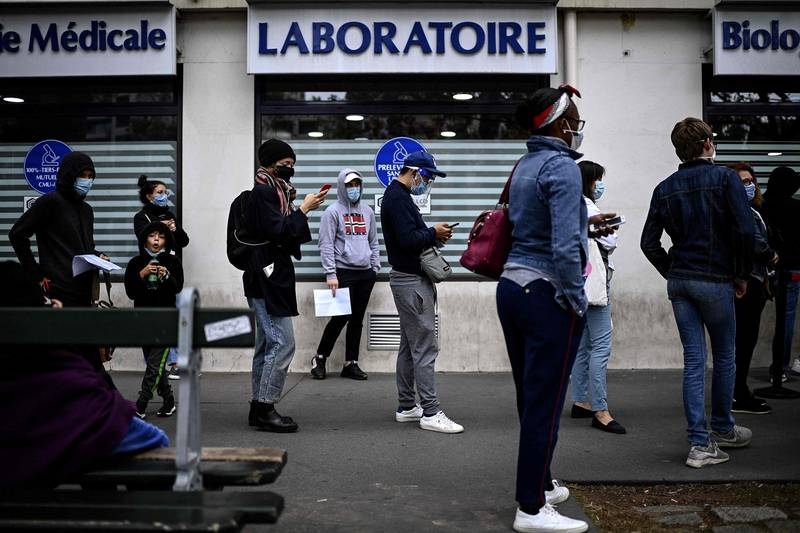Europe Covid rates soar with Germany hit hard but rates drop in England

Countries across Europe are struggling to tackle the highly contagious Omicron coronavirus variant with a combination of lockdowns and vaccine passports. Germany reported more than 100,000 cases for the first time while France, the Czech Republic, Hungary, Bulgaria and Slovenia all suffered another day of record numbers.
In England, infection numbers are dropping after a mini-lockdown that included a booster vaccination drive and the requirement of vaccine passports for some events. These measures, known as Plan B, were removed on Wednesday.
The UK was among the first countries in Europe to see cases rise as Omicron became the dominant variant. German Chancellor Olaf Scholz is seeking to introduce compulsory vaccinations to ramp up the immunity of the country's 83 million people, of which 60 million are fully vaccinated. But resistance has been growing in the country where the BioNTech-Pfizer vaccine was first developed.
Germany has introduced some curbs to stop the spread of the disease, such as limiting access to restaurants to people who have received booster shots or those who have been tested on top of being fully vaccinated or recently recovered. Contact restrictions are also in place keeping private gatherings to 10 people, or two households if an unvaccinated person is present. Omicron now accounts for 70 per cent of cases in Germany.
In neighbouring France, another record high was registered for the previous 24 hours, with 464,769 new cases. President Emmanuel Macron has backed strict vaccine passports as a way of hassling the unvaccinated into receiving the injection.
He said: “I won't send [the unvaccinated] to prison, I won't vaccinate by force. So we have to tell them: from January 15, you will no longer be able to go to restaurants. You will no longer be able to go for a coffee, you will no longer be able to go to the theatre. You will no longer be able to go to the cinema.
“[The unvaccinated] come to undermine the strength of a nation. When my freedoms threaten those of others, I become someone irresponsible. Someone irresponsible is not a citizen.”
Slovakia is aiming to limit access to what its government considers the riskiest events and public gatherings. To attend weddings, parties and swimming centres, people need to have received a booster shot, be fully vaccinated and also be tested for or have recovered from Covid-19.
The Czech government is deciding whether to continue mandatory vaccinations for workers in key professions and people over 60 after 28,469 new cases were recorded.
Polish state employees will move to remote working and private sector companies could be next as the country faces another surge in daily Covid cases. On Wednesday, Switzerland’s Federal Council extended work-from-home measures until the end of February.
